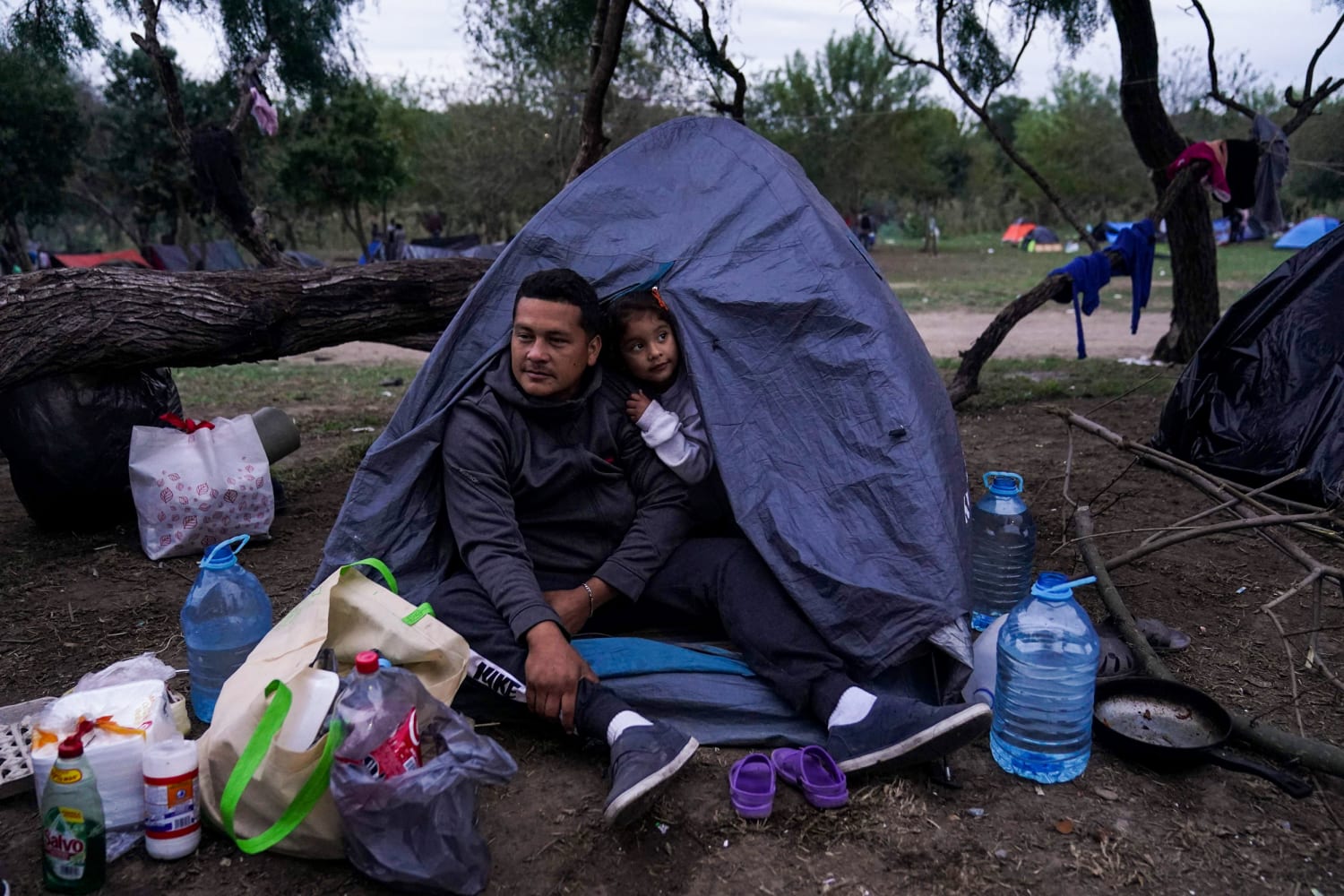[ad_1]

REYNOSA, Mexico — As court fights persist over what laws to use to deal with migrants arriving at the border, thousands have been camping in Mexico awaiting a chance to enter the United States.
Migrants are sleeping in tents set up by Ministerio Senda de Vida, a faith-based group, in two camps in Reynosa, Mexico, across the border from McAllen, Texas.
By early this week there were about 1,300 in one camp and 3,000 at a second. Many were from Haiti. One migrant who approached an NBC News crew at a camp had two young children with him and asked for help to get out of the limbo they’ve been in for about two months.
“Most of the people they come, they go to the United States to be with their family. They don’t know what the policy is in the United States,” Hector Silva DeLuna, the pastor of Ministerio Senda de Vida, told NBC News. “Their only focus is just to be with the family.”
Silva said the space at the encampments is not enough. Thousands more are outside the encampments, waiting to enter.
Arrivals at the border have spiked over the last couple of weeks, coinciding with what was supposed to be a deadline change on Wednesday in the law used to deal with migrant arrivals.
The law, imposed by the Trump administration during the pandemic, allows people to be expelled from the U.S. without being considered for asylum. But because it has no penalties for making multiple attempts to cross, as Title 8 does, the recidivism rate has grown.
Debate over the Trump-era law, known as Title 42, had tied up attempts in Congress to pass a sweeping funding bill before the end of the session. The Senate, however, passed the $1.7 trillion funding bill on Thursday after votes on two Title 42 amendments failed; the bill now goes to the House.
The Biden administration is considering cutting the number of migrants who would qualify for asylum. One proposal is to allow Haitians, Nicaraguans and Cubans to apply for humanitarian parole from their home countries. A similar program started in the fall for Venezuelans.
This week, the city of El Paso declared a state of emergency in an effort to get more help sheltering migrants and transporting them to cities that have more and cheaper flights to other parts of the country or getting them on buses. Colder winter weather due Thursday made the shelters more urgent.
As part of its response, the state sent National Guard personnel and Department of Public Safety troopers to the city. They erected concertina wire along a concrete embankment on the U.S. side of the Rio Grande and stationed themselves and vehicles along it to deter migrants’ entry.
But migrants waited in dropping temperatures Thursday at spots without the wire along the border for a chance to pass border barriers and request asylum.
The trips for many of the migrants can be perilous. Jorge and Carmen Negracia journeyed from Ecuador and made it into the U.S. last week.
They told NBC News they were part of a group kidnapped in Mexico.
Negracia said they were moved to different locations and were shaken down for more money and held with thousands of other people until military officers freed them. The Mexican military learned their location because they were forced to call their families to wire money.
“If it weren’t for those calls, no one would have known where we were or what was happening to us,” Negracia said.
Morgan Chesky and Kayla McCormick reported from Reynosa, Mexico, and Suzanne Gamboa from San Antonio. Jaylinn Herrera contributed from New York.
Jaylinn Herrera contributed.
[ad_2]
Source link
